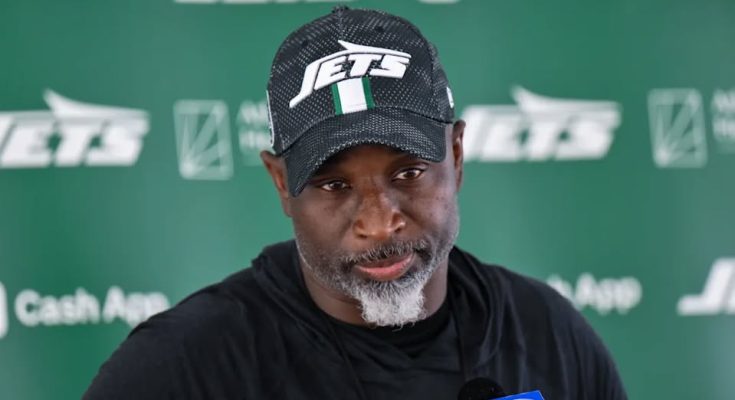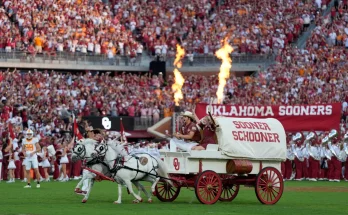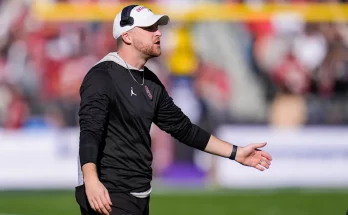For fans of the New York Jets, the journey has always been one of longing, grit, and the relentless pursuit of revival. Every flicker of promise has too often been extinguished by missteps, roster misfires, or bad luck. Yet in the heart of this resilient franchise lies a deep yearning for heroes—men who not only wear the green and white but embody the essence of what the team stands for. That’s why Aaron Glenn’s recent return to the spotlight as a central figure in the Jets’ ongoing transformation has caused a surge of excitement throughout the fanbase. And now, with a legendary endorsement backing him, Glenn is not just a respected former player or accomplished coach—he’s fast becoming a symbol of the Jets’ bold new era.
Glenn’s legacy with the Jets runs deep. Drafted twelfth overall in the 1994 NFL Draft out of Texas A&M, he quickly became a cornerstone of the Jets’ defense, making three Pro Bowls and earning a reputation as one of the most intelligent and instinctive cornerbacks in the league. His leadership and consistency gave a chaotic team structure and purpose during a time when identity was sorely lacking. Those qualities never faded after he left the field. Instead, they matured, deepened, and evolved as he transitioned into coaching, ultimately leading him to become one of the most respected defensive minds in the NFL. His tenure as the Detroit Lions’ defensive coordinator only amplified his credentials, where he helped reshape a previously struggling unit into a fierce, opportunistic force. The idea of Glenn returning to the Jets in any capacity felt like destiny, a reunion written in the stars—and now, that dream seems on the brink of being realized.
But what truly ignited the public conversation around Aaron Glenn’s potential impact on the Jets was a moment that transcended statistics and resume lines: an endorsement from one of the greatest legends to ever grace the sport. When Hall of Famer and NFL icon Deion Sanders—known as “Prime Time” and widely regarded as one of the greatest cornerbacks of all time—spoke glowingly about Glenn’s leadership and football intellect, people listened. Sanders, a man whose voice commands respect and whose career stands as a benchmark for defensive excellence, praised Glenn not merely as a peer, but as someone with the qualities necessary to usher in a new chapter of greatness. His exact words were crisp but powerful: “Aaron Glenn gets it. He always has. He sees the field differently, he leads with purpose, and more importantly—he inspires. That’s the kind of man the Jets need now.”
To the average observer, an endorsement may seem like a typical show of camaraderie among former players. But in the NFL, where locker room respect is currency and credibility is earned through years of production, Sanders’ words carry weight far beyond the surface. They are a stamp of greatness, a passing of the torch, and a nod to Glenn’s readiness to lead—not just a defense, but perhaps an entire franchise toward something higher. Coming from a man like Sanders, who has revolutionized how defensive backs are evaluated and celebrated, this endorsement signals that Glenn’s name should no longer just be in conversations about coordinators. It should be in conversations about head coaches, about culture changers, about architects of transformation.
The timing of this public nod is significant. The Jets are once again in a period of transition, marked by heightened expectations and a locker room filled with both star power and uncertainty. With a quarterback in Aaron Rodgers returning from injury, young talents like Sauce Gardner and Garrett Wilson blossoming into stars, and a defense that has shown signs of dominance, the raw materials for success are present. But as Jets fans know all too well, talent alone doesn’t win championships. Leadership, accountability, and clarity of vision do. That’s why Aaron Glenn’s presence—whether as a future coaching hire, culture advisor, or eventual head coach—feels like a solution the team has been inching toward for years.
Beyond his coaching chops and player pedigree, Glenn represents something else: continuity between the Jets’ past and future. He played in an era where the team had grit, where players like Mo Lewis, Curtis Martin, and Wayne Chrebet symbolized heart and blue-collar pride. Glenn wasn’t just part of that era—he helped define it. To bring him back into the fold is to reconnect the franchise with its roots in toughness and accountability, traits that often go missing in today’s free-agency-driven NFL. That connection can be a powerful unifying force, not only for the players but for the fans, who still long to see those qualities consistently reflected on the field.
Moreover, Glenn’s coaching style reflects modern sensibilities rooted in old-school values. His players rave about his ability to communicate, to teach, and to motivate. He doesn’t just install schemes; he instills belief. One former Lion, when asked about Glenn’s impact in Detroit, said, “Coach Glenn made us feel like we could stop anyone. He broke down the game in a way that made you believe in yourself. You didn’t just understand your assignment—you understood your purpose.” That kind of coaching is invaluable in today’s NFL, where maintaining emotional cohesion and discipline across a 17-game season is as crucial as any tactical acumen.
For the Jets organization, which has cycled through a revolving door of coaching philosophies in recent years—from Rex Ryan’s brashness to Adam Gase’s rigid structure to Robert Saleh’s defensive-minded stoicism—there’s something compelling about the potential of a leader like Glenn. He offers a middle ground: passionate but composed, cerebral but intuitive, stern but beloved. The blend of these traits could be the exact cocktail of leadership needed to elevate the Jets from potential playoff contenders to legitimate Super Bowl threats.
There’s also the practical matter of mentorship. The Jets have invested heavily in a young, talented secondary, led by the electrifying Sauce Gardner. Having someone like Glenn, who not only played the position at a high level but knows how to nurture that talent from a coaching standpoint, could prove invaluable. Glenn’s influence on a player like Gardner could mirror what Sanders did for young corners throughout his own career—except this time, the tutelage would come in-house. Imagine Gardner developing under Glenn’s daily guidance, learning how to read routes the way Glenn used to, how to bait quarterbacks, how to master situational awareness. The implications for this defense could be game-changing.
Jets owner Woody Johnson has been vocal in his desire to elevate the franchise’s status and restore respectability to one of the NFL’s most loyal fanbases. He’s invested heavily in infrastructure, in Rodgers, in branding. But all of that requires an engine to run—a football mind that understands the psychology of winning and the grind it takes to get there. Aaron Glenn, now elevated by Sanders’ ringing endorsement, is becoming harder to overlook. In fact, the idea of not involving him more deeply in the Jets’ plans now feels like a missed opportunity waiting to happen.
The endorsement from Deion Sanders also reintroduces something else that has been missing from Jets discourse: belief. Not just hope, which Jets fans have lived on for decades, but belief rooted in legitimacy. When someone of Sanders’ stature co-signs your value, it changes the narrative. It invites new conversations in coaching circles, raises your profile among league executives, and makes your candidacy feel inevitable rather than speculative. Glenn’s name, already respected, now has a new shine. He’s not a maybe. He’s a must-consider.
The road ahead for the Jets is still filled with challenges. The AFC East is brutally competitive. Aaron Rodgers’ health remains an open question. Chemistry must be built, games must be won, and mistakes must be minimized. But the foundation is slowly being laid for something authentic, something resilient. And at the center of that vision, the name Aaron Glenn now looms large, no longer just a nostalgic nod to a former star, but a beacon for what’s possible when past greatness meets present ambition.
Whether the Jets officially bring Glenn back into the fold as part of their staff in the near future or keep a close eye on him as a potential head coach down the line, one thing is now undeniable: the tide is turning. The franchise is no longer just waiting for a savior. It is identifying and elevating people who embody the savior spirit. Glenn fits that mold to perfection. With Deion Sanders’ endorsement echoing across the football world, the message is clear—Aaron Glenn has the stamp of greatness, and the Jets would be wise to lean into it.
Because in a league driven by legacy and vision, few things are more powerful than the trust of a legend. And when one legend taps another, it signals not just admiration—but a passing of purpose. For the New York Jets, that purpose is long overdue. And with Aaron Glenn in the spotlight, it just might finally be fulfilled.



